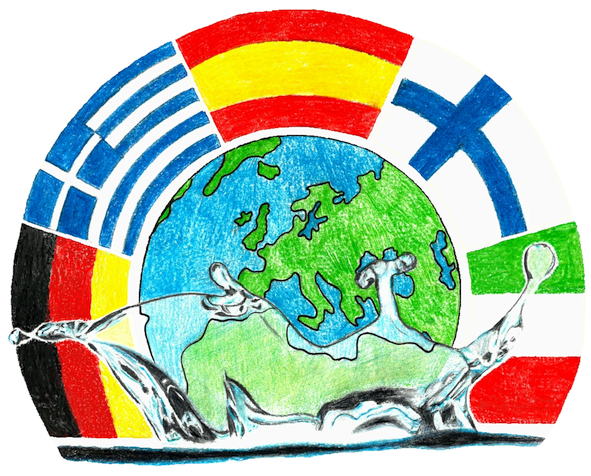Use of Water on the Albring dairy farm in Westerstede
What do they use water for?
The dairy farm uses water to clean the site and machines, such as the vehicles, the milking parlour or the calf igloos. The animals also need water to drink. However, they do not use water to clean the barns.
How much water is used?
Generally, a cow drinks about 80 liters of water a day. The Albring family have around 500 cows, which means that around 40,000 liters a day are only used for drinking. This corresponds to approximately 267 bathtubs. At the same time, they also have 475 calves (1-2 years old) that need about 7,100 liters a day (about 48 bathtubs). They also need water to clean various machines, such as the milking parlour (2,700 l) or for general cleaning of the systems every six weeks (6,000 l). The amount of water needed to grow maize and fodder is unknown.
Where does the water come from? Where did it come from in the past? What are the costs?
In the past, all water was produced by the OOWV, the regional water supplier. But today the farm has its own well and uses it for everything except for the cleaning of the milking parlour. In addition to the delivery pipe, the well consists of a treatment plant that separates the water from iron, for example. There are no costs for the well water except for maintenance. For the water supplied by the OOWV, the Albrings pay just as much as normal households (90ct/m3).
Where does the waste water go to? Can you reuse it? Do pollutants get into the groundwater?
The used water flows through various paths into the slurry cellar under the barns and then with the slurry onto the fields. Strictly speaking, it is reused for irrigation. They also have a pre-cooling system that cools the milk from 37 °C to 20 °C for transport. The now lukewarm water is then used again for drinking or cleaning. No pollutants get into the groundwater from this. However, cleaning agent residues from the milking system, for example, get into the slurry cellar and therefore onto the fields but in a very diluted form and only in small quantities.

